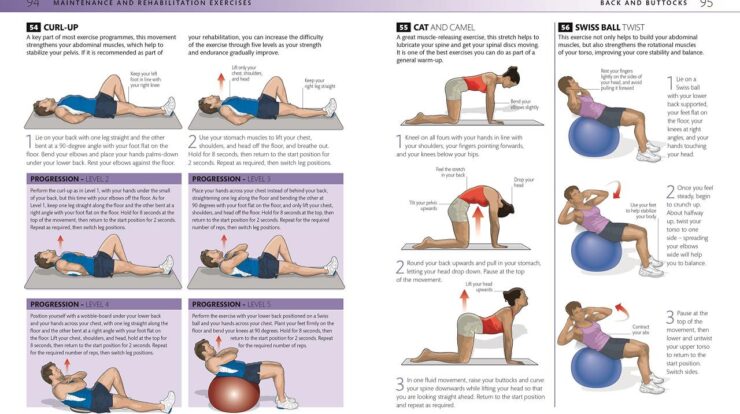
Suffering from gum disease? Don’t let the dentist be your only option! Dive into our comprehensive guide on how to cure gum disease without a dentist. From natural remedies to lifestyle changes, we’ve got you covered. Get ready to say goodbye to gum pain and inflammation, all from the comfort of your own home.
In this guide, we’ll explore the best home remedies, over-the-counter treatments, and alternative therapies that can help you effectively combat gum disease. We’ll also provide practical tips for improving your oral hygiene and preventing future flare-ups. So, grab a pen and paper, and let’s embark on a journey to healthier gums!
Home Remedies
Gum disease is a common problem that can be caused by a variety of factors, including poor oral hygiene, smoking, and certain medical conditions. While there are a number of effective treatments for gum disease, many people prefer to try home remedies first.
There are a number of natural remedies that have been shown to be effective in treating gum disease. These remedies include:
Salt Water Rinses
Salt water rinses are a simple and effective way to reduce inflammation and pain in the gums. To make a salt water rinse, simply dissolve 1/2 teaspoon of salt in 8 ounces of warm water. Rinse your mouth with the solution for 30 seconds, then spit it out.
Repeat 2-3 times per day.
Turmeric Paste
Turmeric is a spice that has powerful anti-inflammatory properties. To make a turmeric paste, mix 1 teaspoon of turmeric powder with 1 teaspoon of water. Apply the paste to your gums and leave it on for 10-15 minutes. Rinse your mouth with water and repeat 2-3 times per day.
If you’re struggling with gum disease, you don’t have to suffer alone. There are plenty of ways to cure gum disease without a dentist, and one of the best ways is to follow the steps outlined in this article: how to cure gum disease without a dentist . This article provides a step-by-step guide on how to cure gum disease without a dentist, so you can get your smile back on track in no time.
Tea Tree Oil
Tea tree oil is an essential oil that has antibacterial and anti-inflammatory properties. To use tea tree oil for gum disease, add 2-3 drops of the oil to a glass of water and rinse your mouth with the solution for 30 seconds.
Repeat 2-3 times per day.
Home remedies can be an effective way to treat gum disease, but it is important to remember that they are not a substitute for professional dental care. If you have gum disease, it is important to see a dentist to rule out any underlying medical conditions and to get the best possible treatment.
Looking for a dentist to treat your gum disease can be a hassle, but what if there was a way to cure it without one? It’s possible with how to cure gum disease without a dentist . This method involves using natural remedies and lifestyle changes to heal your gums and prevent further damage.
With a little effort, you can achieve a healthy smile without the need for a dentist.
Over-the-Counter Treatments

Over-the-counter (OTC) treatments for gum disease offer a convenient and accessible option for managing the condition. These products are widely available at pharmacies and supermarkets and can provide relief from symptoms such as bleeding, swelling, and discomfort.
Common OTC mouthwashes and toothpastes for gum disease contain active ingredients that target different aspects of the condition. Here are some of the most common ingredients and how they work:
Antimicrobial Agents
- Chlorhexidine: A powerful antimicrobial agent that kills bacteria and prevents plaque formation.
- Triclosan: An antibacterial agent that inhibits the growth of bacteria and reduces inflammation.
- Cetylpyridinium chloride (CPC): A broad-spectrum antimicrobial agent that kills bacteria and fungi.
Anti-Inflammatory Agents
- Sodium fluoride: A mineral that helps strengthen tooth enamel and reduce inflammation.
- Potassium nitrate: A salt that reduces sensitivity and inflammation.
- Hydrogen peroxide: An antiseptic that kills bacteria and helps remove plaque.
The effectiveness of OTC treatments for gum disease varies depending on the severity of the condition and the individual’s response to the treatment. While these products can provide temporary relief from symptoms, they are not a substitute for professional dental care.
Regular dental checkups and cleanings are essential for preventing and treating gum disease effectively.
Lifestyle Modifications

Lifestyle modifications play a crucial role in preventing and treating gum disease. Implementing these changes can significantly improve oral hygiene and overall oral health.
Gum disease can be a pain, but there are ways to cure it without a dentist. How to cure gum disease without a dentist is a great resource for finding out how to cure gum disease without a dentist. There are many different ways to cure gum disease without a dentist, so you’re sure to find one that works for you.
Oral Hygiene Practices
Maintaining good oral hygiene is paramount in preventing and treating gum disease. This includes:
- Regular Brushing:Brush your teeth twice daily with a soft-bristled toothbrush and fluoride toothpaste. Brush for at least two minutes, covering all surfaces of your teeth.
- Flossing:Floss daily to remove plaque and food particles from between your teeth, where brushing cannot reach.
- Tongue Cleaning:Use a tongue scraper or brush to remove bacteria from your tongue, which can contribute to gum disease.
Diet and Smoking
A healthy diet and quitting smoking are essential for preventing and treating gum disease:
- Healthy Diet:Consume a balanced diet rich in fruits, vegetables, and whole grains. Limit sugary foods and drinks, as they can feed the bacteria that cause gum disease.
- Quit Smoking:Smoking damages the immune system and impairs the body’s ability to fight gum disease. Quitting smoking is crucial for improving oral health and reducing the risk of gum disease.
Tips for Improving Oral Hygiene Habits
To improve your oral hygiene habits, consider the following tips:
- Use a toothbrush with soft bristles to avoid damaging your gums.
- Replace your toothbrush every three to four months or sooner if the bristles become frayed.
- Floss using a gentle sawing motion, avoiding snapping the floss against your gums.
- Brush and floss at the same time each day to make it a habit.
- Set reminders or use an app to track your brushing and flossing routine.
Alternative Therapies: How To Cure Gum Disease Without A Dentist

Alternative therapies offer unconventional approaches to gum disease management. While scientific evidence may be limited for some, these therapies have gained popularity due to their natural and holistic nature. It’s crucial to consult a healthcare professional before incorporating any alternative therapy into your routine.
Gum disease can be a real pain in the neck, but did you know that you can cure it without ever stepping foot in a dentist’s office? Check out this awesome guide how to cure gum disease without a dentist and say goodbye to those pesky gums for good!
Oil Pulling
Oil pulling involves swishing oil, typically coconut or sesame oil, in the mouth for 10-15 minutes. Proponents claim it reduces inflammation, kills bacteria, and whitens teeth. However, studies have yielded mixed results, and it’s not a substitute for regular brushing and flossing.
Acupuncture
Acupuncture, a traditional Chinese medicine technique, involves inserting thin needles into specific points on the body. It’s believed to stimulate the body’s natural healing abilities and reduce inflammation. While some studies suggest acupuncture may benefit gum disease, more research is needed.
Herbal Supplements, How to cure gum disease without a dentist
Certain herbal supplements, such as green tea extract, grape seed extract, and curcumin, have antioxidant and anti-inflammatory properties that may support gum health. However, it’s essential to use them under professional guidance as they may interact with medications or have other side effects.
Prevention and Management
Regular dental checkups and professional cleanings are crucial for maintaining good oral health and preventing gum disease. Dental professionals can identify early signs of gum disease and recommend appropriate treatments to prevent its progression.
Signs and Symptoms
Early signs of gum disease include:
- Red, swollen, or bleeding gums
- Gums that are receding from the teeth
- Loose teeth
- Bad breath
- Pus between the teeth and gums
Prevention
- Brush your teeth twice a day with a soft-bristled toothbrush and fluoride toothpaste.
- Floss your teeth daily to remove plaque and bacteria from between your teeth.
- Use an antibacterial mouthwash to kill bacteria and freshen breath.
- Eat a healthy diet that includes plenty of fruits, vegetables, and whole grains.
- Avoid sugary foods and drinks, as they can contribute to plaque formation.
- Quit smoking, as smoking damages the gums and increases the risk of gum disease.
Management
- If you have gum disease, it is important to follow your dentist’s recommendations for treatment.
- This may include professional cleanings, antibiotics, or surgery.
- It is also important to continue to practice good oral hygiene habits at home to prevent the recurrence of gum disease.
Last Point

Remember, while home remedies and over-the-counter treatments can provide relief, it’s crucial to consult a dentist for a proper diagnosis and professional treatment if your gum disease persists or worsens. By following the tips and remedies Artikeld in this guide, you can take control of your gum health and maintain a radiant smile without breaking the bank or enduring painful dental procedures.
Popular Questions
Can I use mouthwash to cure gum disease?
Over-the-counter mouthwashes containing ingredients like chlorhexidine or cetylpyridinium chloride can help reduce plaque and bacteria, but they cannot cure gum disease on their own. They can be a helpful addition to a comprehensive treatment plan.
How often should I brush my teeth to prevent gum disease?
Brush your teeth at least twice a day, once in the morning and once before bed. Use a soft-bristled toothbrush and fluoride toothpaste to gently remove plaque and bacteria.
Can stress cause gum disease?
Chronic stress can weaken the immune system, making you more susceptible to gum disease. Find healthy ways to manage stress, such as exercise, meditation, or yoga.





